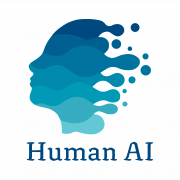10 Academic Publications Supporting Human AI: EvidencIA at the Service of People
The technology powering Human AI is not the product of intuition, but of evidence. Our system has been developed, applied, and validated in real-world contexts, generating results that are now part of scientific and academic publications. From book chapters to presentations at international conferences, this collection reflects a model that is solid, rigorous, and deeply human.
Below, we present a selection of ten publications that scientifically support our technology for assessing and developing socio-emotional competencies through natural language. You can access all of them directly from this article.
1. An Innovative Model in Education: The Case of Jesuitinas Pamplona School
Book Chapter | Octaedro Publishing (2024)
This chapter presents the implementation of the MEDAP model at Jesuitinas Pamplona School, where Human AI was used as a socio-emotional assessment tool based on the analysis of students’ written texts. The experience enabled the generation of personalized reports and contributed to improving student well-being and academic performance.
Read full publication
2. Assessing Key Entrepreneurial Competencies with AI
Book Chapter | Dykinson (2024)
A study exploring how Human AI’s artificial intelligence can be applied to identify the most relevant socio-emotional competencies in entrepreneurial profiles. It combines scientific evidence with expert consultation through the Delphi method.
Read full publication
View project summary on the Human AI blog
3. Vocational Training and Socio-Emotional Development: A Success Story
Book Chapter | Dykinson (2024)
This chapter presents the application of Human AI in the field of vocational training, demonstrating how standardized AI-based assessment can guide and enhance employability.
4. AI in Organizations: Conference with the College of Psychology of Asturias
Presentation | COPPA, January 2025
Presentation of Human AI as an innovative solution for the assessment of socio-emotional competencies, during a conference focused on the ethical use of AI in workplace and organizational settings.
Watch the conference video on Youtube
5. Innovative Educational Models: The Jesuitinas Pamplona Experience
Conference Presentation | 3rd International Congress Education and Knowledge (2024)
A complementary version of the Jesuitinas case, presented as an educational best practice at an international congress, focused on the holistic development of students.
View publication on ResearchGate
6. Entrepreneurship and Objective Competency Assessment: A Mixed-Methods Approach
Presentation | CIEE Congress, Egregio (2024)
Research linking the entrepreneurial personality profile with the 35 socio-emotional competencies of the OCEAN model. Human AI is presented as a tool capable of assessing these competencies without relying on traditional tests.
7. Gender, Self-Perception, and Entrepreneurship: A Critical Perspective
Presentation | CIIDES Congress (2024)
This study explores self-perception biases in entrepreneurial confidence between men and women, and demonstrates how Human AI can provide an objective assessment that overcomes these biases.
View publication on ResearchGate
8. AI and Employability: New Pathways for Career Guidance
Presentation | Conference on Educational Sustainability (2024)
An analysis of how artificial intelligence can support personalized guidance for vocational training students, enhancing their employability through the development of socio-emotional skills (SES).
View publication on ResearchGate
9. Assessing Personal Development in Students: AI as a Facilitator
Presentation | ICON-huma 2023
A study that positions artificial intelligence as a complementary tool for supporting students’ learning journeys, contributing to their academic, professional, and personal development.
View publication on ResearchGate
10. Artificial Intelligence and Mental Health: The PersonIA Study
Scientific Poster | XXVII National Congress of Psychiatry (2024)
This scientific communication presents the results of the PersonIA study, which aims to validate an AI model capable of assessing personality in individuals with common mental disorders. Led by Dr. Manuel Martín and conducted in collaboration with healthcare and academic institutions, the research highlights the potential of AI to deliver more personalized, accessible, and human-centered assessments.
Read more about the study on our blog
A Team Committed to Science and Human Development
These publications represent just a glimpse of the rigorous work behind each of our technological applications. At Human AI, we remain committed to an artificial intelligence that is evidence-based, validated, and human-centered.
But behind this technology lies something even more important: a dedicated team of people who research, design, evaluate, and apply this technology in real-world contexts.
We would like to extend our deepest thanks to all those who have contributed to the studies, applied experiences, and validations that provide scientific grounding to our model:
- Human AI Research Team and Partner Universities
Beatriz Abad-Villaverde, Íñigo Benito Simón-Ricart, Juan Tuñas, María Cruz Díaz de Terán, Belén Goñi Alegre, José Sánchez Piquero, Rocío Suárez Malagón, Ignacio Estrada Lozano, Patricia Muñoz, Antonio Ignacio Domínguez Pachón, Ramón Martín, Enrique Luis García, Héctor Grass Boada, Alfredo Lecumberri Martínez, Marta Martínez Villar.
- Partner Educational Institutions
Roncesvalles Orbaiceta and Ángel Estanga Goñi, from Jesuitinas Pamplona School.
- Healthcare Centers and Scientific Institutions
Manuel Martín Carrasco, from Aita Menni Hospital and Hermanas Hospitalarias, as Principal Investigator of the PersonIA study.With the collaboration of teams from the Navarre Health System, University Clinic of Navarra, Hermanas Hospitalarias of Navarra, Gregorio Marañón Hospital, University Hospital of Vitoria, and the University of Navarra (MIPAC and DATAI).
Thank you for bringing science, innovation, and humanity to every step.
We do not walk this path alone — we walk it together.






